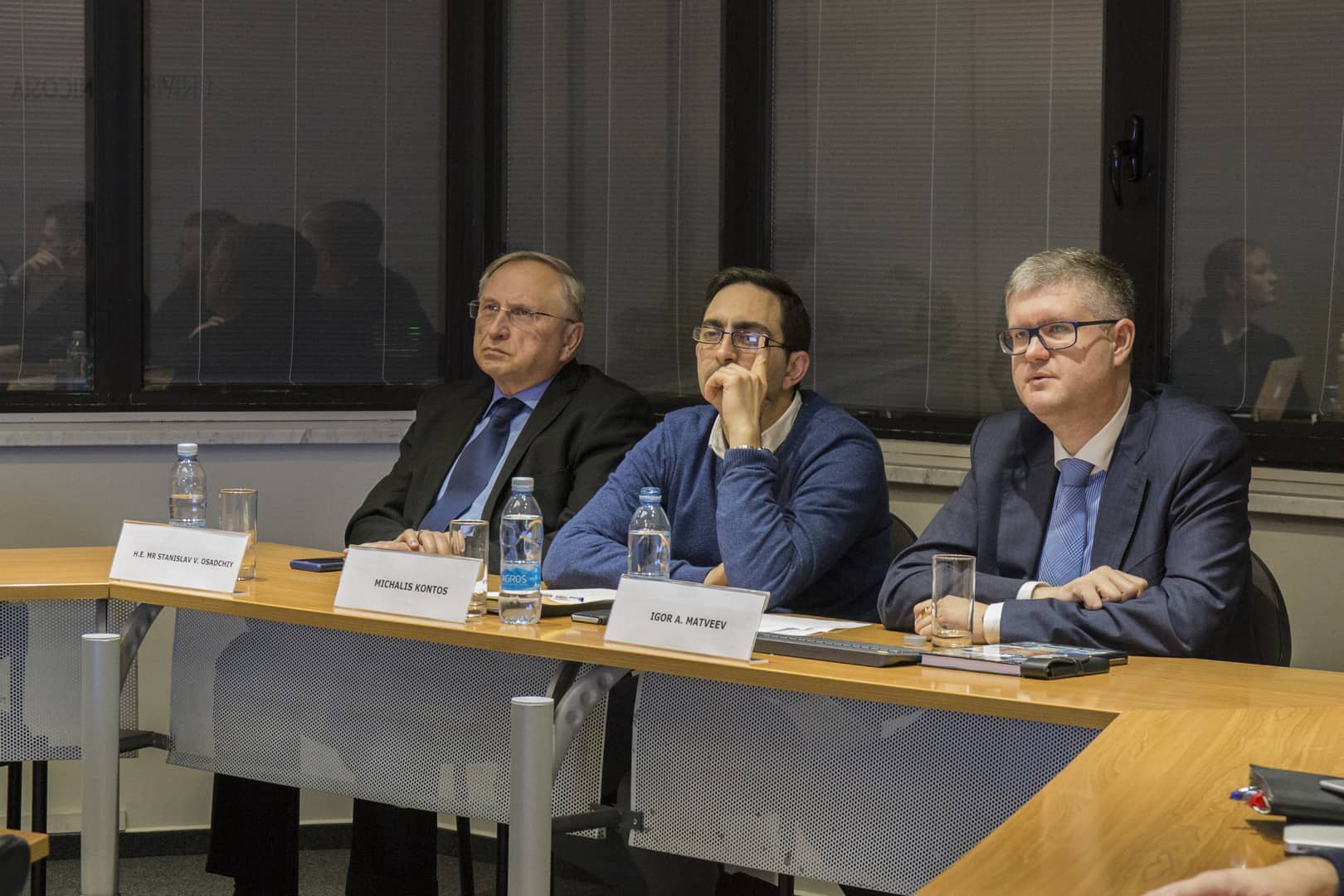Russian Diplomat Igor Matveev presented his book on the Crisis in Syria
Lessons and Prospects on the Financial Impact of the Crisis at a timely book presentation at UNIC
What is the situation in Syria today, following eight years of civil war that almost flattened one of the most historic of Arab countries? Was the Arab Spring the main cause of the perils that befell this country, causing in parallel a “tsunami” of immigration in neighbouring countries, but also in Europe? What were the respective roles of Russia, China and Iran in the “salvation” of Syria, and which countries are expected to contribute to Syria’s reconstruction from the ashes of civil war?
The above and many more such questions are addressed in a new book on “The Financial Impact of the Crisis in Syria: Lessons and Prospects,” by Russian diplomat and academic, Igor Matveev. The book was presented at the University of Nicosia at an event organised by the Cyprus Centre for European and International Affairs, chaired by Dr Michalis Kontos, Assistant Professor at UNIC’s Department of Politics and Governance. The book presentation was preceded by an introduction by the Russian Ambassador to Cyprus, H.E. Mr. Stanislav Osanci, who focused on Moscow’s policy in Syria and its wider role in the Middle East.
The writer, born in Sochi, in 1972, has served in various posts, including at the Russian Embassy in Damascus. He presented the five chapters of his book, avoiding any harsh criticism of the West, focusing on the developments in Syria over the past few years.
In the first chapter of his book, Matveev refers to Syria’s financial situation before the crisis. He writes about the effort of Syrian President Bashar al Assad to create a modern state, but also about Damascus’ trade relations with Turkey, the EU and others. In chapter two, he talks about the Arab Spring (2011-2013); the roots and causes of the Syrian crisis; the sanctions imposed on Syria by the US, the EU and other Arab countries; making special reference to the ensuing humanitarian crisis. In the third chapter, he addresses the attempts by the Damascus government to create a “War Economy” as he calls it, in order to avoid the complete social and economic collapse of the state. He analyzes how Assad’s government has lost control of a large part of the country, referring in parallel to the destruction of many of Syria’s cultural sites (e.g. Palmyra). He also writes about the financial assistance provided by Iran, which he views as crucial to the survival of the state in the years of crisis.
The fourth chapter of his book is devoted mainly to the fight against the terrorism of the Islamic State and Al Nusra. Here, Matveev speaks of the unknown presence of Chinese military forces in Syria, and of the gradual restoration of control by government forces in various Syrian provinces. He also writes about the appearance of the “Kurdish factor”, as he calls it. In the fifth and final chapter, the author refers to the “prospects of post-war stabilization and to building up a new Syria”. He also analyzes Iran’s role in the reconstruction of Syria, as well as the respective roles of Russia, China, India and the EU in this.
In closing, Matveev underscores the plight of the refugees, a consequence of the civil war, pointing out that some 3.5 million Syrians have fled to Turkey (from where they flow into Europe), with an additional 247,000 refugees in Jordan; 658,000 in Iraq; and approximately 1,000,000 in Lebanon.

